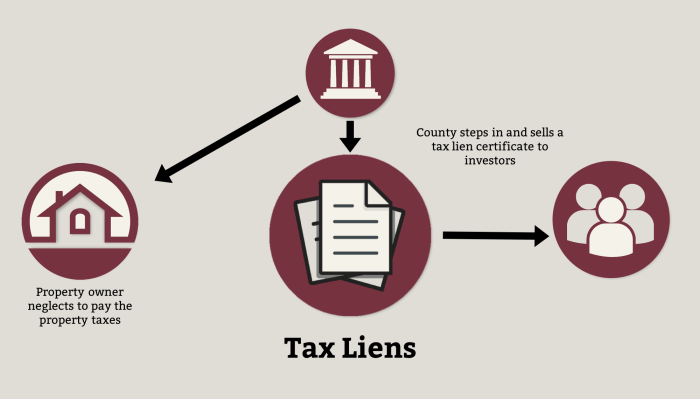Unlocking Business Investment Opportunities

Business investment opportunities present a path to financial growth and potential wealth creation, but navigating this landscape requires a thorough understanding of various investment avenues, market dynamics, and strategic decision-making. From identifying promising ventures to securing funding and managing investments effectively, this comprehensive guide explores the essential aspects of business investment opportunities, empowering individuals to make informed decisions and maximize their returns.
The world of business investment encompasses a diverse range of opportunities, each with its unique characteristics and risk profile. Whether you’re considering investing in a burgeoning startup, an established company seeking expansion, or a real estate project with promising returns, it’s crucial to carefully assess the potential of each opportunity. This involves evaluating factors such as market size, competition, management team, and financial performance, ensuring a well-rounded understanding of the investment’s viability.
Understanding Business Investment Opportunities

Investing in businesses can be a rewarding endeavor, offering the potential for substantial returns. However, it’s crucial to approach business investments with a thorough understanding of the opportunities available and the factors that contribute to success.
Types of Business Investment Opportunities
Business investment opportunities come in various forms, each presenting unique risks and rewards.
- Startups: Investing in startups offers the potential for high returns, but also carries significant risk. Startups are new ventures with innovative ideas and limited track records, making their success uncertain. Investors in startups often seek to capitalize on the potential for rapid growth and market disruption.
- Established Businesses: Investing in established businesses provides a level of stability and predictability compared to startups. These businesses have proven track records and existing customer bases, reducing the risk of failure. Investors in established businesses often seek to acquire a stake in a profitable and growing company.
- Real Estate: Real estate investments involve purchasing properties for rental income, appreciation, or both. This type of investment can offer stable cash flow and potential for long-term appreciation. However, real estate investments require significant capital and can be illiquid.
- Venture Capital: Venture capital firms invest in high-growth startups and early-stage companies. Investors in venture capital funds pool their resources to provide capital for promising businesses with the potential to disrupt their respective industries.
- Angel Investors: Angel investors are individuals who invest their personal capital in startups and early-stage companies. They typically provide seed funding and mentorship to promising ventures.
Factors to Consider When Evaluating Business Investment Opportunities
Several key factors influence the potential success of a business investment.
- Market Size and Growth Potential: A large and growing market provides ample opportunity for a business to expand and generate revenue. Investors should carefully analyze the target market, its size, and its growth prospects.
- Competition: The level of competition within a market can significantly impact a business’s profitability. Investors should assess the competitive landscape, identifying key competitors and their strengths and weaknesses.
- Management Team: A strong management team with proven experience and expertise is essential for a business’s success. Investors should evaluate the management team’s qualifications, experience, and ability to execute the business plan.
- Financial Performance: Investors should scrutinize the business’s financial performance, including revenue, profitability, and cash flow. This analysis helps assess the business’s financial health and its ability to generate returns.
Examples of Successful and Unsuccessful Business Investments
The success of a business investment depends on various factors, including market conditions, management decisions, and external events.
- Successful Investment: Amazon.com is a prime example of a successful business investment. Founded in 1994, Amazon initially focused on online book sales and has since expanded into various e-commerce sectors. Its strong management team, innovative business model, and focus on customer experience have contributed to its remarkable growth and profitability.
- Unsuccessful Investment: Pets.com was an online pet supply company that launched in 1998. Despite a significant marketing campaign and initial investor interest, the company struggled with profitability and eventually filed for bankruptcy in 2000. Factors contributing to its failure include overspending on marketing, insufficient revenue generation, and a competitive market landscape.
Securing Funding for Business Investments

Securing funding is a crucial step in bringing your business investment ideas to life. Whether you’re launching a new venture, expanding an existing operation, or acquiring a new asset, having the right financial resources is essential for success. This section explores different funding sources available to business investors and Artikels a comprehensive guide to crafting a compelling investment proposal.
Sources of Funding for Business Investments
Understanding the various funding options available is critical for choosing the best fit for your specific business needs. Here’s a breakdown of common sources:
- Banks: Traditional lenders like banks offer loans, lines of credit, and other financing options for businesses. These are often secured by assets, requiring collateral, and typically involve interest payments.
- Venture Capitalists: Venture capitalists invest in early-stage companies with high growth potential, often in exchange for equity. They provide not only capital but also mentorship and industry expertise.
- Angel Investors: Angel investors are typically high-net-worth individuals who invest in startups or small businesses. They often have a strong interest in specific industries and may provide valuable connections and guidance.
- Crowdfunding Platforms: Crowdfunding platforms like Kickstarter and Indiegogo allow entrepreneurs to raise funds from a large number of individuals. This can be a good option for projects with a strong community appeal.
Comparing Funding Sources
Each funding source has its advantages and disadvantages. The table below summarizes key considerations:
| Funding Source | Pros | Cons |
|---|---|---|
| Banks | – Relatively low interest rates compared to other sources – Established lending practices and clear terms |
– Requires collateral, which can be risky for startups – Strict eligibility criteria and extensive documentation |
| Venture Capitalists | – Significant capital infusion – Access to mentorship and industry expertise |
– High equity requirements, often demanding a significant share of the company – Focus on high-growth potential, may not be suitable for all businesses |
| Angel Investors | – Smaller investments compared to venture capitalists – Often provide valuable connections and guidance |
– Less structured than venture capital funding – May be harder to secure funding from angel investors |
| Crowdfunding Platforms | – Access to a large pool of potential investors – Can be a good option for projects with strong community appeal |
– Requires a compelling campaign to attract investors – Limited funding potential compared to traditional sources |
Crafting a Compelling Investment Proposal, Business investment opportunities
A well-crafted investment proposal is essential for attracting potential investors. It should clearly communicate your business idea, market opportunity, financial projections, and team expertise. Here’s a step-by-step guide:
- Executive Summary: Briefly summarize your business idea, target market, and key value proposition. This should capture the investor’s attention and highlight the potential for return on investment.
- Company Overview: Provide a detailed description of your company, including its mission, history, and current stage of development. Highlight your team’s experience and expertise.
- Market Analysis: Analyze the target market, including its size, growth potential, and key trends. Identify your competitive landscape and explain how your business differentiates itself.
- Business Model: Describe your revenue model, cost structure, and key revenue drivers. Explain how your business will generate profits and achieve sustainable growth.
- Financial Projections: Provide detailed financial forecasts, including revenue, expenses, and cash flow projections. These should be realistic and supported by market research and industry data.
- Investment Request: Clearly state your funding needs and how the funds will be used. Explain the potential return on investment for investors.
- Exit Strategy: Artikel your plan for exiting the investment, such as an IPO, acquisition, or sale of the business. This demonstrates your commitment to a successful outcome for investors.
- Appendix: Include supporting documents, such as resumes, market research reports, and financial statements.
“A compelling investment proposal should be concise, well-organized, and supported by strong evidence. It should clearly articulate the value proposition and the potential for a successful return on investment.”
Understanding the intricacies of business investment opportunities empowers individuals to make informed decisions, manage risks effectively, and ultimately achieve their financial goals. By conducting thorough due diligence, evaluating investment potential, and securing appropriate funding, investors can navigate this dynamic landscape and unlock the potential for significant returns. Remember, success in business investment often hinges on a combination of knowledge, strategic planning, and a willingness to embrace calculated risks.
General Inquiries
What are the risks associated with business investments?
Business investments inherently carry risks, including market volatility, competition, economic downturns, and the possibility of business failure. It’s crucial to conduct thorough due diligence and understand the potential risks before committing any capital.
How can I diversify my investment portfolio?
Diversifying your investment portfolio across different asset classes, industries, and geographical locations can help mitigate risk by reducing the impact of any single investment’s performance on your overall portfolio.
What are the tax implications of business investments?
Tax implications vary depending on the type of investment, your investment structure, and your jurisdiction. It’s advisable to consult with a tax professional to understand the tax implications of your specific investment decisions.
Business investment opportunities abound, offering diverse avenues for growth. A particularly attractive niche is the real estate market, and within this sector, investment properties houston stand out as a promising choice. Houston’s robust economy and expanding population create a favorable environment for real estate appreciation, making it a compelling option for savvy investors seeking substantial returns.
Business investment opportunities are abundant, with real estate often proving a lucrative avenue. For veterans seeking to diversify their portfolio, a VA loan for investment property can be a valuable tool, offering competitive rates and flexible terms. These loans can provide a solid foundation for building wealth and securing a future with a steady stream of income from rental properties.
Business investment opportunities are abundant, offering a chance to grow your wealth and secure your future. One attractive avenue is real estate, and you might be surprised to learn that you can actually how to buy an investment property with no money down. This strategy can be a great way to enter the market and build your portfolio, ultimately leading to greater financial freedom and diversification in your business investments.
Business investment opportunities are plentiful, but finding the right avenue can be tricky. Investing in investment properties in prime locations can be a smart move, as they often offer consistent returns and appreciation. This type of investment can provide a stable foundation for your portfolio and contribute to your overall financial success.
Business investment opportunities can be found in a variety of sectors, and real estate often presents a solid option. If you’re considering investing in rental properties, exploring an LLC loan for investment property could be a smart move. This type of loan can offer advantages like limited liability protection and potentially better interest rates, making it a worthwhile avenue to research as you pursue your investment goals.









